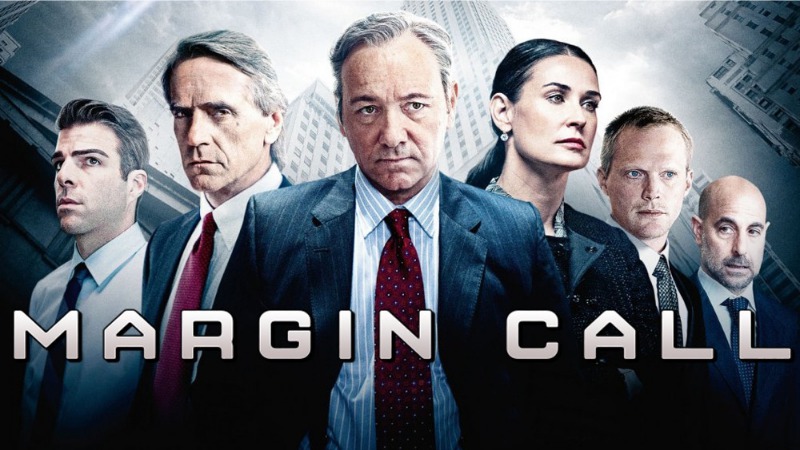Film review: “Margin Call”
“Margin Call” is a terrific film about a fictional Wall Street brokerage firefighting during the global financial crisis of 2007-2008.
By Stefan Nilsson
“Margin Call” was filmed in 2010 and released in 2011, just a few years after the global financial crisis killed off several major brokers and severely hurt all the others. In the film, as was the case in real life, it is reckless and highly leveraged bets on mortgage-backed securities that kick off the shitshow. The film’s script is very well researched and written. The film’s story, which takes place over a 24-hour period during the start of the financial crisis, takes off when some of the firm’s risk professionals uncover the true extent of the firm’s risk-taking.
Throughout the film, we get excellent soundbites that ring very true and remind me of similar conversations from my own career. The character Jared Cohen (played by Simon Baker) tells his team as they are about to have their first emergency risk meeting in the middle of the night with John Tuld, the ruthless CEO: “One piece of advice for everyone before we go in there. This could get a little ugly. But whatever you do, just tell the truth. No sugarcoating. Do not change a word of it. No one here is smart enough, including the rocket scientist.” Tuld, splendidly portrayed by Jeremy Irons, listens to the situation and then sums it up succinctly: “So, what you’re telling me is that the music is about to stop and we’re going to be left holding the biggest bag of odorous excrement ever assembled in the history of capitalism.” Tuld also has a one-liner in the film that every real-life investment banker should know: “There are three ways to make a living in this business: be first, be smarter or cheat.”
Overall, the film contains great acting, at times superb. Acting pros such as Kevin Spacey, Paul Bettany, Demi Moore, Stanley Tucci, Simon Baker and Jeremy Irons put on terrific performances. The characters are very believable and remind me of real-life characters from my professional past. It is hard to believe that this was JC Chandor’s directorial debut. What a smashing debut it was. He manages to expertly portray the rush of the trading floor, the office politics, the scapegoating and so on. Making a great drama film based on asset-backed securities can’t be easy.
For those of us who worked in the major Wall Street brokerages when the financial crisis hit, we recognise a lot of the behaviour in the film. Some of it is uncomfortable reminders of how things were done and the attitudes that led to the crisis. But the film also reminds us of the good things. Power games, greed, selfishness, daggers and fear, yes, but also smart people putting brains together as a team to get things done in the middle of the night. A major real-life issue that is highlighted in the film is the silo situations that existed in major brokerages, where people only knew their own piece of the puzzle. Most people were specialists of one kind or another and they often didn’t have a clue what was going on elsewhere in the firm. Top management was clueless about the risks being taken and once they became aware, it was too late to change course. Hopefully, some of today’s leaders have learnt their lessons.









